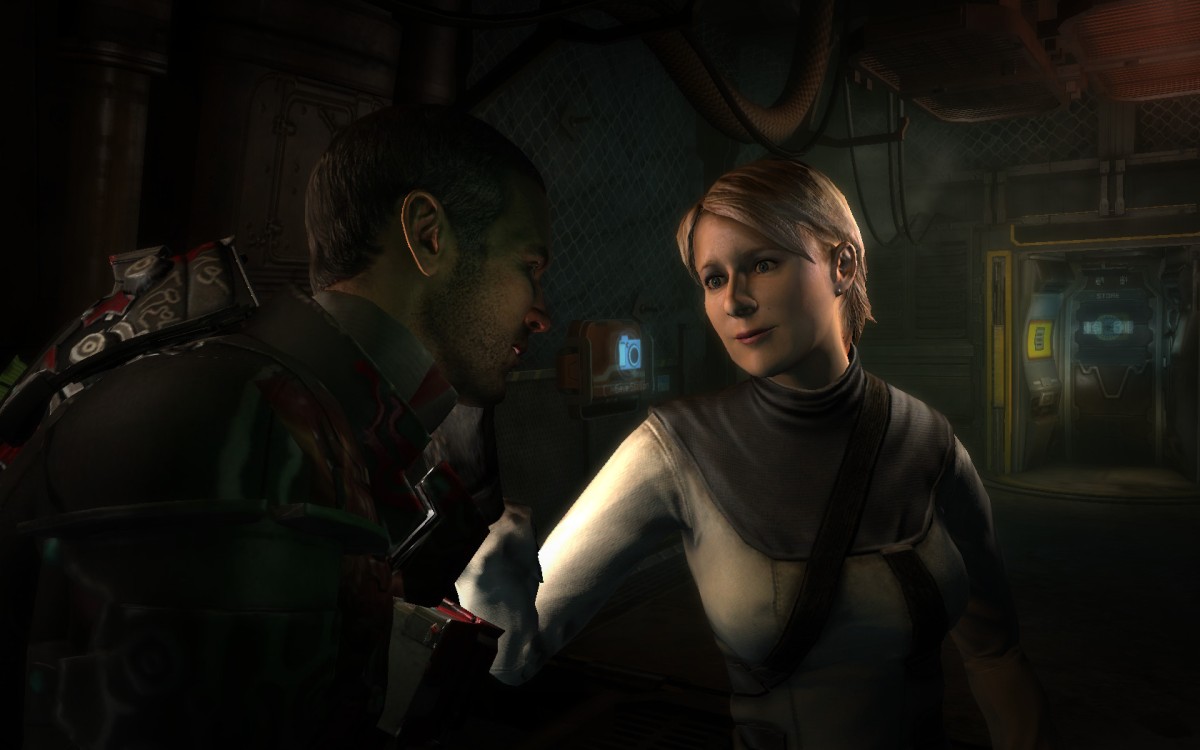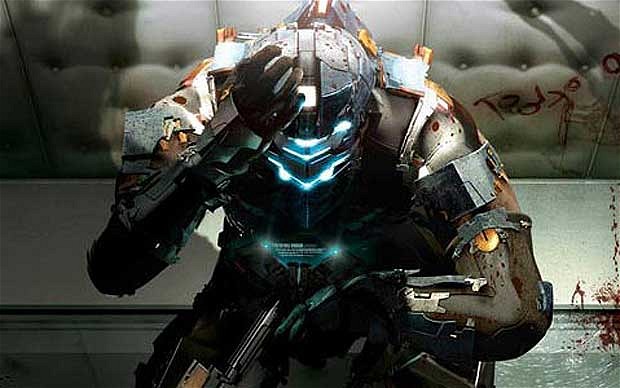Cognitive dissonance occurs when a person – in some way or another – finds a contradiction in their thoughts. They might do something that goes against their morals, or have two opposing ideas at the same time. The Dead Space series is not really terribly philosophical, but in between zombie-shootie-killie action, there actually are a few moments that discuss this phenomenon.
Let’s start with the protagonist, Isaac Clarke. The first Dead Space game starts off with Isaac heading out towards the mining ship Ishimura, where his lover Nicole was stationed. He watches a video letter from her hundreds of times on the way – and every time he stops it right before she commits suicide on video, despite knowing that is how the video ends. Then he sets off to find her. He often sees her on the Ishimura, and sometimes speaks to her. And yet, Isaac knows perfectly well that she is dead.
Or does he?
Back in my university days, we used to talk in philosophy class about two levels of beliefs: intellectual beliefs and gut beliefs (they had five-dollar words for these things, but we don’t care about that). For example, a philosopher might believe that nothing really exists. That’s an intellectual belief based on a flow of logic and reasoning. That same person, when faced with a wall, will not walk into it because if they do they’re going to hurt themselves. So, on a functional/gut level, they believe that the wall exists. This is important because it allows a person to understand and accept the world, even if it contradicts something else they believe to be true.
On an intellectual level, Isaac knows that his girlfriend Nicole died on the Ishimura. When being “interviewed” by a psychiatrist in Dead Space 2, Isaac specifically says that he knows Nicole is dead. Of course he is looking at a bloody, undead Nicole over the shoulder of the psychiatrist. “Make us whole” she says.
Now, there is a science-fictiony explanation in the game for this. The Marker, an alien construct, is projecting Nicole into Isaac’s mind to try to get him to do what it wants (basically). Even if we take that into consideration, I think that the Marker picks Nicole for a reason: deep inside, Isaac doesn’t really believe that Nicole is dead. Moreover, I believe that Isaac often sees Nicole even without the Marker’s influence, the Marker is just capitalizing on a preexisting delusion on the part of Isaac.
We don’t know a lot about Isaac’s relationship with Nicole, but we do know a couple of things: first, he did really care about her; and two, he never wanted her to go to the Ishimura. I think that Isaac refuses to process Nicole’s death on the gut level, because deep down he does not want to live in a world where the woman he loves is dead because he “let” her go. This is not an intellectual belief, remember, this a gut belief, based on practicality and emotion. Isaac needs to believe that Nicole is alive in order to understand and accept the world.
So she keeps coming back.

Sometimes she is covered in blood, other times she appears perfectly healthy, but Nicole won’t leave Isaac – or rather, Isaac won’t leave Nicole.
I think one of my favorite scenes in the Dead Space series is near the end of the second game. Isaac, exhausted, is sitting against a wall. Nicole appears next to him. She is talking to him. She reaches out to him and says “touch me.” Isaac clearly considers it. He wants to give up, to resolve the dissonance. But he finally refuses. “I don’t think that’s a good idea.”
It’s a profoundly eerie scene. We know that Isaac is sitting there alone, but he talks to “Nicole” as if she is real, even though he knows on a rational level that she cannot possibly be. That gut belief that somewhere, somehow, Nicole has to be alive, will not go away despite all evidence.
It’s easier than you might think to acquire a belief like this. Sometimes we just can’t deal with life, so we create an alternate reality. An illegal arms dealer might tell himself that he is transporting teddy bears to Africa. Abuse victims create stories of falling down stairs. Grieving people tell themselves that their deceased loved ones have gone on a trip. At first the lie conflicts with what you know to be the truth, causing dissonance. Tell the lie often enough and the falsehood can become “true” in one’s mind, resolving the dissonance. The other option is to accept reality and resolve the dissonance by coming face to face with the truth, even if it forces us to reevaluate our worldview.
It’s an interesting topic, a sort of gray area between philosophy and psychology. I think I might be reaching a little on this one, but I thought it was a fun thing to write about. I hope you enjoyed reading.
Thanks for visiting and please leave a comment! If you have a moment, let me know what you would like to read in the future.
